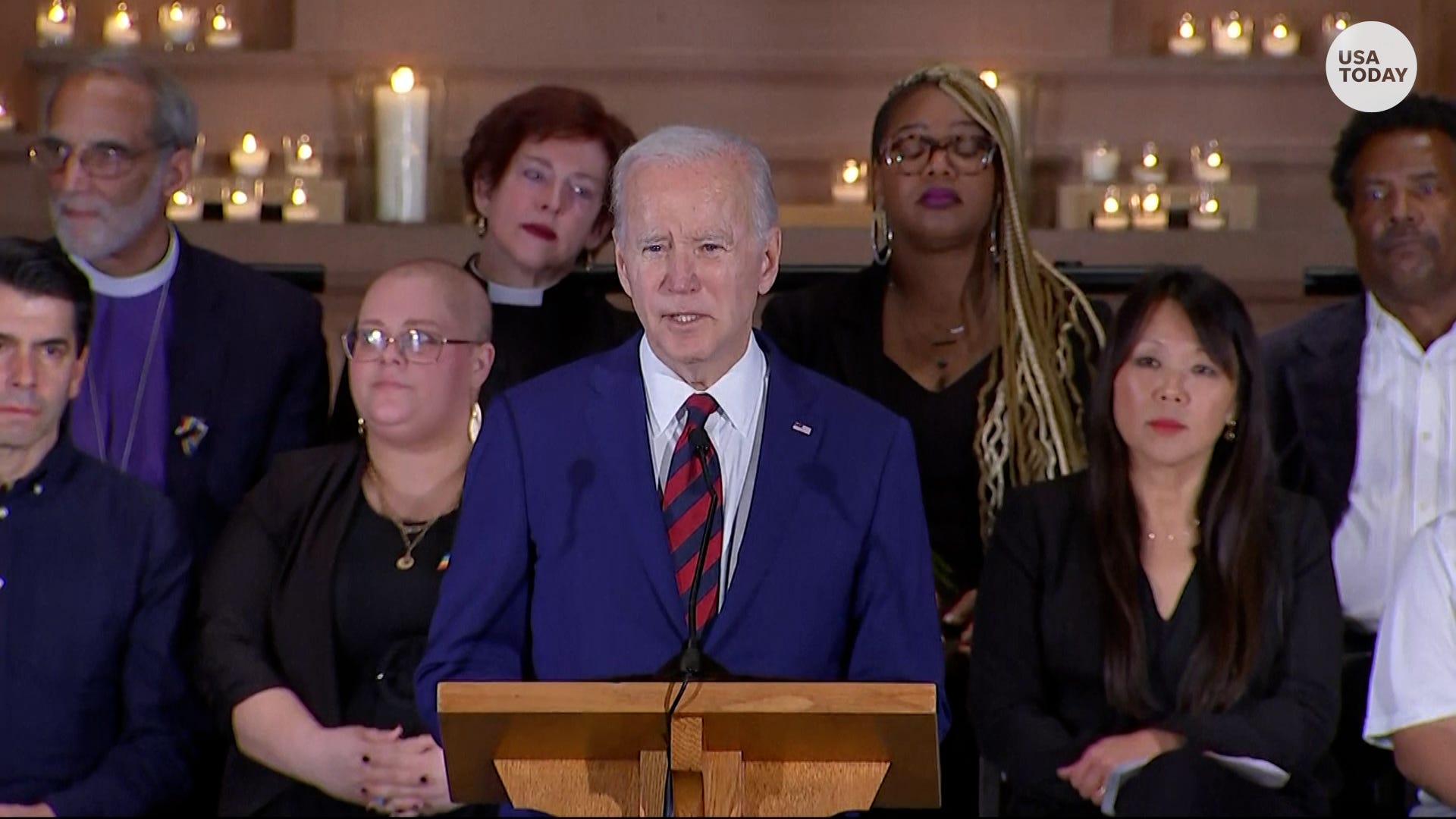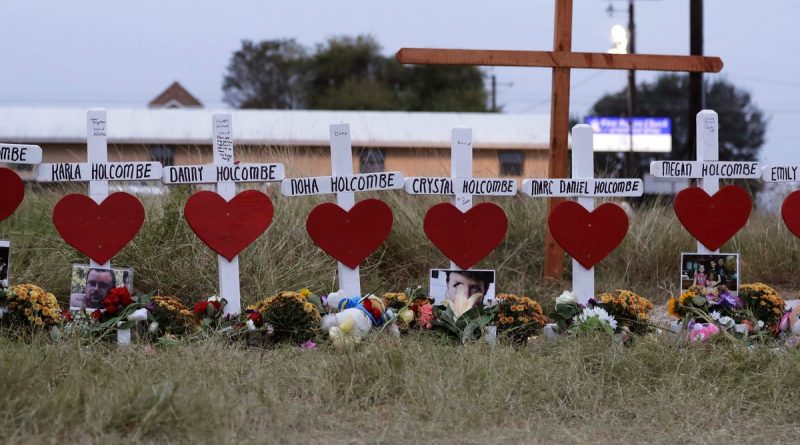Sutherland Springs church shooting victims dealt ‘blow’ by DOJ appeal
[ad_1]

Joe Biden joins Sandy Hook families nearly a decade after the shooting
Nearly 10 years after the Sandy Hook shooting, President Biden honored victims of gun violence.
Claire Hardwick, USA TODAY
Lawyers for the families and victims of the 2017 mass shooting at a Texas church are raising alarms about a Department of Justice appeal they say delays the payment of $230 million in damages and flies in the face of the Biden administration’s gun safety agenda.
The department filed a brief Monday in its appeal of the district court decision that found the federal government liable for the shooting at First Baptist Church in Sutherland Springs that left 26 dead.
A federal judge previously ruled the U.S. Air Force failed to report the gunman’s criminal history to the FBI, making it possible for the ex-airman to skirt background checks and purchase the firearms used in the shooting.
Now the Justice Department is arguing the Air Force’s failure to report information on the gunman undermined the efficacy of the background-check system but did not cause the massacre.
“The Sutherland Springs Church Shooting victims and survivors of the worst church shooting in U.S. history have been bracing for this latest betrayal by their government. While expected, the reality of this blow is heart-breaking,” The Ammons Law Firm, which represents some of the victims, said in a statement.
Critics say the DOJ’s argument stands in direct conflict with President Joe Biden’s efforts to bolster background checks and “red flag” laws that deny guns to people who are deemed to be dangerous.
“Background checks save lives, and President Biden has made that the backbone of his gun safety policy. And he’s right. But his own DOJ disagrees,” said Jamal Alsaffar, lead trial attorney for the victims. “At this critical moment, the Biden DOJ is cutting off the administration’s nose to spite their own face.”
What happened in Sutherland Springs?
On Nov. 5, 2017, Devin Patrick Kelley fired more than 450 rounds, killed 26 worshippers – including several children and a pregnant woman – and wounded 22 others at First Baptist Church using guns he purchased from licensed firearms dealers. He also fatally shot himself.
Why was the Air Force blamed?
Kelley served about five years with the Air Force and was discharged in 2014 after he was convicted of assaulting his wife and stepson. That conviction meant Kelley was legally barred from purchasing or possessing a firearm.
But the Air Force failed to report the conviction to an FBI database that tracks criminal history. That means Kelley wasn’t flagged when firearm retailers ran background checks. Instead, he was able to buy four firearms from licensed federal dealers over the course of several years and used three in the shooting.
A subsequent investigation by the Department of Defense inspector general found the Air Force had four opportunities to submit Kelley’s fingerprints to the FBI and two opportunities to submit a final report but did not.
A federal judge in 2021 ruled the Air Force is “60% responsible” for the shooting. Last year, after a second trial, the judge said the branch must pay more than $230 million in damages to survivors and victims’ families. This summer, the DOJ filed an appeal to overturn the rulings.
A ‘blow to America’s safety’?
At the first trial, the Justice Department argued background checks would not have stopped the shooting because Kelley could have obtained a firearm through other means.
But the court disagreed. The judge found Kelley was “unlikely to acquire a gun from an alternative source,” and it was “not clear” Kelley was “so determined to commit the shooting that he would have found a way to acquire firearms after being denied” at licensed dealers.
On appeal, the Justice Department does not explicitly argue that submitting Kelley’s criminal records to the FBI would not have made a difference, said Daniel Webster, director of the Johns Hopkins Center for Gun Policy and Research who testified during trial.
Rather, the department argues the Texas court used the wrong legal standard for assessing the duty of the federal government to prevent harm.
“The United States is not liable for Kelley’s actions, and is certainly not more responsible for those acts than the murderer himself,” the brief said.
Lawyers for the victims struck a harsher tone, claiming the brief “dealt a blow to America’s safety” by asking the Fifth Circuit to find that background checks “do not work to prevent gun violence.”
Sutherland Springs victims ‘need this money’
Attorney Rob Ammons said that, for his clients, the appeal delays the payment of damages. “There’s a lot of folks in this group that need this money — that aren’t getting the healthcare they need because it’s being withheld,” he said.
In October, several gun safety groups signed a letter to Attorney General Merrick Garland calling on him to withdraw the appeal and “accept responsibility for its failures,” as in the cases of Charleston and Parkland.
In 2021, the Justice Department reached an $88 million settlement with victims’ families and survivors of the 2015 shooting at Mother Emanuel AME Church in Charleston, South Carolina, over claims the agency was negligent in failing to prohibit the sale of the firearm used in the massacre.
The following year, the U.S. agreed to pay $127.5 million to the families affected by the 2018 shooting at Marjory Stoneman Douglas High School in Parkland, Florida, over claims the FBI failed to stop the gunman despite receiving information he intended to cause violence.
“If we’re going to talk the talk about background checks, then even when it’s the government that has messed up, we need to walk the walk,” Ammons said.
